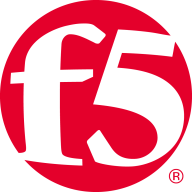

F5 Advanced WAF and Azure Web Application Firewall are two solutions competing in the category of web application protection. F5 Advanced WAF is often preferred due to its comprehensive features and versatility, particularly in complex environments, while Azure WAF is favored for its cost-effectiveness and integration within Azure's ecosystem.
Features: F5 Advanced WAF provides robust application security through DDoS prevention, AI-driven threat detection, and granular policy customization. Its versatility and integration with load balancers allow for enhanced security management. On the other hand, Azure Web Application Firewall offers ease of use with seamless integration within Azure, providing effective fundamental security capabilities with less complexity.
Room for Improvement: Suggestions for F5 Advanced WAF include improving user-friendliness, legacy protocol support, and pricing structures. User interface enhancements and more responsive technical support are also desired. Azure WAF could improve by expanding its documentation, adding advanced features to match competitors, and offering more cost-effective plans for smaller enterprises.
Ease of Deployment and Customer Service: F5 Advanced WAF provides flexibility across hybrid and on-premises environments, though its complexity during deployment and variable support levels can be challenging. Azure Web Application Firewall offers easier deployment in cloud settings and benefits from Microsoft's support infrastructure, yet improvements in response time and documentation clarity are necessary.
Pricing and ROI: F5 Advanced WAF is recognized for delivering significant ROI with its comprehensive security features despite high costs. It is justified in security-critical environments. Azure Web Application Firewall's affordable pricing within the Azure ecosystem makes it a practical option for enterprises with existing Azure services. Both solutions offer favorable ROI, yet Azure provides more cost-effective choices for dedicated Azure users.
Recently, they have been under serious attack with major exploits, such as Log4j, affecting Fortinet and Palo Alto, and even Cisco and VMware.
AI-based recommendations save on time and money.
Time savings in daily operations come from the automatic learning and signature update reducing the need for constant manual rule management, allowing the security and network teams to spend significantly less time handling false positive application-related escalations.
Subscription models offer clearer ROI due to a more competitive pricing scheme.
F5 Advanced WAF protects our organization and provides security, achieving a return on investment.
They are good at troubleshooting and configuring things.
I am very satisfied with the response from Microsoft dedicated architects if it happens that I have to call for their support.
I reached out to their support, and they helped me resolve the issue effectively.
Both response time and availability need to be improved.
F5 Advanced WAF provides the insights and notifications I need in terms of reporting and alerting.
If there is a bug, the support is usually understanding and resolves issues.
Some Azure applications, like the web application firewall, require a certain level of SKU for hosting setup.
For our company, Azure Web Application Firewall works effectively for scalability.
Very rarely do I see any latency issues.
F5 Advanced WAF has been very reliable and consistent for us; in our on-premise enterprise setup, it has been stable and predictable in day-to-day operations without any unexpected crashes or WAF-related downtime in production.
Upgrading the platform regularly is necessary for security, however, frequent updates every six months or year from Azure can be a maintenance overhead.
The pricing needs improvement, and I think for beginners it will be a little bit complicated, so the ease of use could be enhanced.
Deployment training for F5 Advanced WAF is lacking and restricts growth by being inaccessible and costly for partners.
Overall, these are not blockers, merely enhancement opportunities, and once tuned, F5 Advanced WAF is very stable and reliable; improving usability, reporting, and onboarding would make it even more effective for larger environments.
There is excellent clarity in the LTM and the WAF.
It is even a lower cost compared to AWS and GCP.
Sometimes, when opting for a higher SKU, it's not the WAF itself that's costly but the additional requirements.
I would place Azure Web Application Firewall at an eight on a scale from one to 10, with one being cheap and 10 being expensive.
Licensing is capacity-driven, so you need careful planning based on traffic volume and use cases, and adding features such as Bot Protection impacts costs; once licensing is clear and sized correctly, there are no surprises.
Subscription models have competitive pricing, while perpetual licenses involve an upfront higher cost.
The price is affordable and satisfactory.
With Microsoft, everything is within a single suite, making it easier to configure and plan.
It is almost impossible to access these assets from outside, requiring a very skilled attacker to obtain asset tokens of a customer using Azure.
It integrates effectively with things such as Sentinel and Defender for Cloud, so mostly it's the analytics and now the AI capabilities that have been introduced with Co-pilot.
The Advanced Attack Signature database is very strong and regularly updated, effectively blocking SQL injections, cross-site scripting, command injections, and file inclusion attacks while allowing selective enabling or disabling of signatures to avoid blocking genuine traffic.
F5 Advanced WAF offers the best features that are capable of stopping any type of attack, and it is a really reliable and stable product that you can rely on to stop any type of attack.
The perpetual license, despite an initial higher cost, lacks transparency regarding support expiration.
| Product | Market Share (%) |
|---|---|
| F5 Advanced WAF | 7.8% |
| Azure Web Application Firewall | 3.1% |
| Other | 89.1% |


| Company Size | Count |
|---|---|
| Small Business | 6 |
| Large Enterprise | 12 |
| Company Size | Count |
|---|---|
| Small Business | 25 |
| Midsize Enterprise | 15 |
| Large Enterprise | 31 |
Azure Web Application Firewall (WAF) provides centralized protection of your web applications from common exploits and vulnerabilities. Web applications are increasingly targeted by malicious attacks that exploit commonly known vulnerabilities. SQL injection and cross-site scripting are among the most common attacks.
To learn more about our solution, ask questions, and share feedback, join our Microsoft Security, Compliance and Identity Community.
F5 Advanced WAF is a web application security solution for financial and government sectors, e-commerce, and public-facing websites. It offers protection against various attacks, including botnets, web scraping, and foreign entities. The solution can be deployed on-premises or in the cloud and is often used with other security tools. Its most valuable features include DDoS and DNS attack protection, SSL uploading, anomaly detection, and the ability to input custom rules.
F5 Advanced WAF has helped organizations to expose more services to the public while providing an extra layer of protection, preventing revenue loss, and securing connectivity.
We monitor all Web Application Firewall (WAF) reviews to prevent fraudulent reviews and keep review quality high. We do not post reviews by company employees or direct competitors. We validate each review for authenticity via cross-reference with LinkedIn, and personal follow-up with the reviewer when necessary.